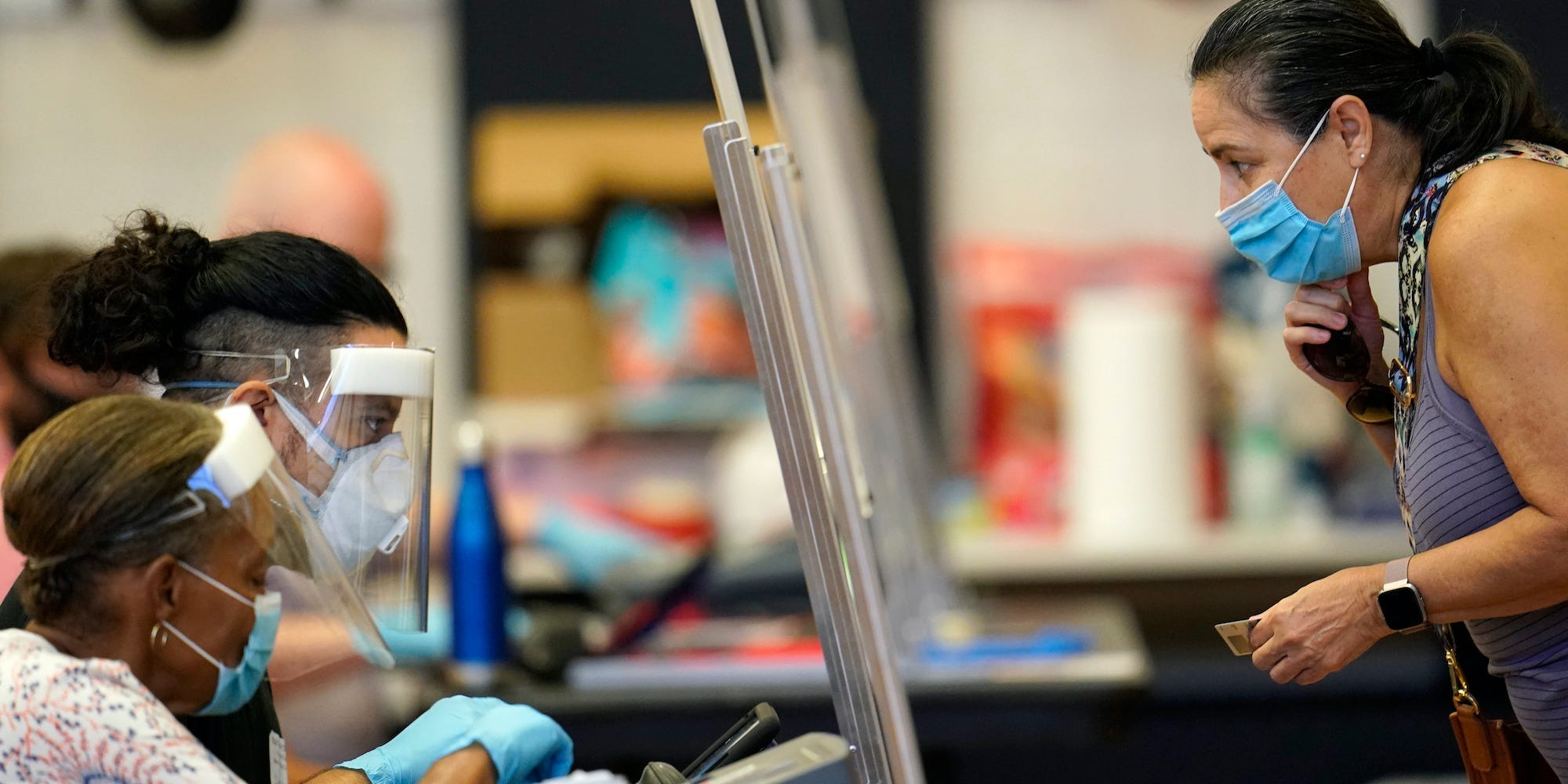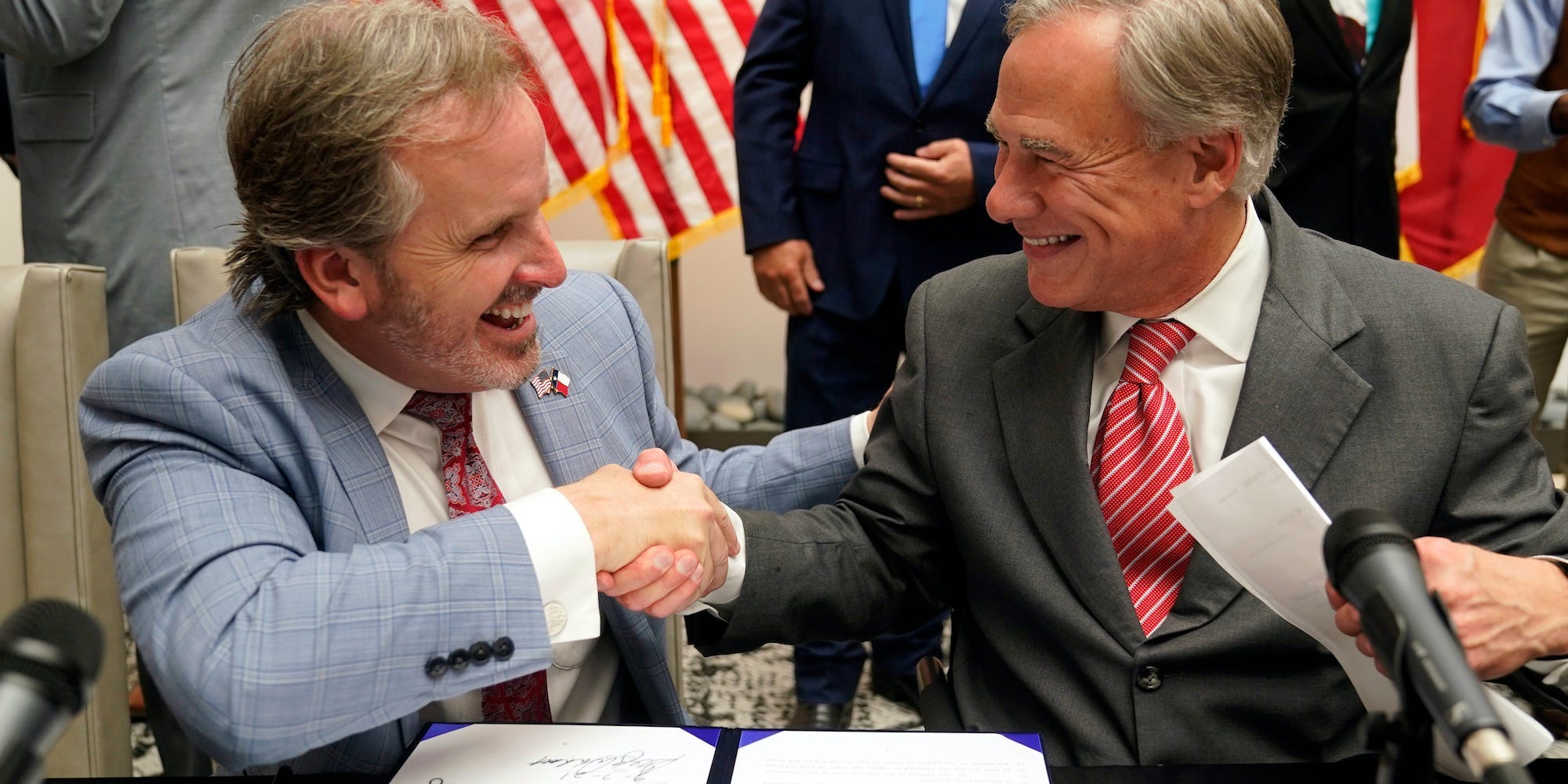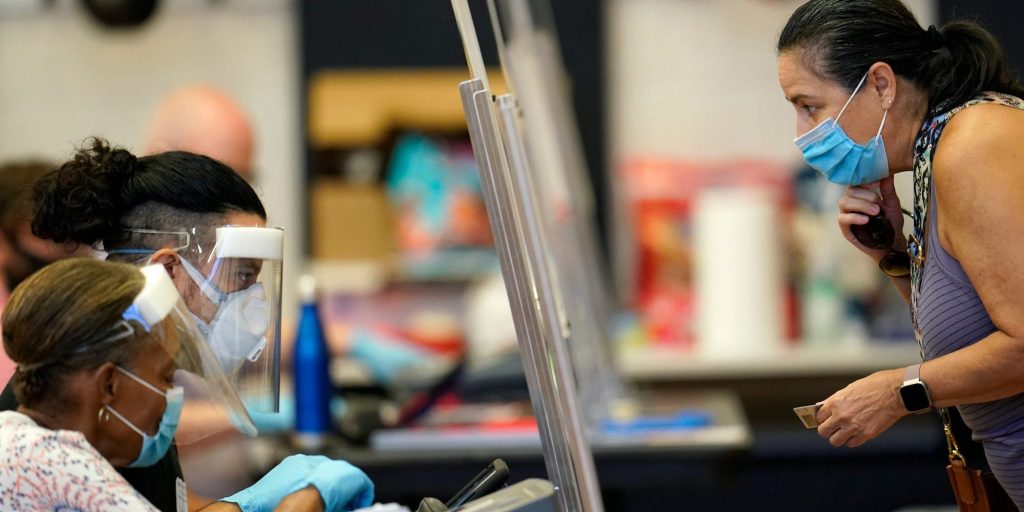
- A paper shortage and new identification requirement are causing problems ahead of Texas' March 1 primary.
- A rule requiring voters to provide ID information to vote absentee is causing high rejection rates.
- The state's new law, Senate Bill 1, also makes it harder for election officials to assist voters.
Texas' new voting law and supply chain problems are causing a shortage of paper registration and mail ballot application forms and a spike in rejected absentee ballot applications ahead of the states' March 1 primaries.
A new identification requirement has caused Travis County, home to Austin, to reject half of absentee ballot applications so far, County Clerk Dana Beauvoir said on Thursday. Harris County, home to Houston, has rejected 16% of absentee ballot applications, according to KHOU News. Bexar County, home to San Antonio, has seen a large share of ballot applications rejected for not complying with the identification law, KSAT reported.
Senate Bill 1, which the Republican-controlled state legislature passed along party lines in 2021, bans temporary pandemic-era voting expansions, tightens voting rules especially around absentee voting, empowers election observers, and adds a slew of new restrictions and penalties on election officials, which Beauvoir said is impeding her ability to help voters whose ballot applications risk getting rejected.
"If I seem a little upset by this, it is because voters are being mistreated in this circumstance," Beauvoir, a veteran election official retiring after 2022, said in a Tuesday news conference.
Senate Bill 1 bumps up the penalty for fraudulent registration from a class B to a class A felony, requiring a new voter registration form.
Texas is one of just eight states with no online voter registration for most voters, meaning the state's voter registration system largely relies on paper. It has the earliest registration deadline allowed under federal law, putting voter outreach groups in a time crunch to get the new forms out to voters before the January 31, 2022 registration deadline for the primary.
A spokesperson for the Texas Secretary of State's office told KUT News that they are "limited in what we can supply this year, because of the paper shortage and the cost constraints due to the price of paper and the supply of paper."
The new identification requirement in Senate Bill 1 also means that Texas has new forms for absentee ballot requests.
"All the old forms, which some people have stockpiled including the League of Women Voters and a lot of campaigns and a lot of political operatives, have to be thrown away. They are no good," Beauvoir explained. "And a lot of people are still trying to use the old form because we've had a paper shortage and the printing of these new forms means they're scarce, they're hard to come by. Nevertheless, you have to use the new form: if somebody uses the old form, their ballot will be rejected."

Confusion over a new identification rule is leading to ballot application rejections.
Texas, which already restricts absentee voting to those with a documented excuse, now requires voters to include identifying information — either their driver's license number, state identification number, or Social Security number — when applying for an absentee ballot.
As Texas Monthly and VoteBeat reported in July 2021, the new rule also requires the number the voter provides on their application to match whichever number they provided when they first registered to vote. If the numbers don't match, the application is rejected, a rule that officials say is driving the high rate of rejections.
"The voter is playing a guessing game with this," Beauvoir said. "The voter is trying to remember the number they signed up with at the voter registration office 10, 15, 30 years ago."
Beauvoir also pointed out that an identification number is also required on the return envelope for the ballot itself, creating two opportunities throughout the voting process for a voter to make a mistake that could get their ballot getting rejected.
Beauvoir, whose office has sparred with the Texas Secretary of State's office on Twitter in recent days, said she and other counties are having trouble getting guidance from the office both on what to do with absentee ballot applications without the right identifying number and how to work the state's new online mail ballot tracking system.
Beauvoir explained that new penalties and restrictions on election officials imposed under Senate Bill 1 make it difficult for her to advise voters on how to ensure their ballot application isn't rejected.
The bill makes it a felony offense for election officials to proactively send out mail ballot application forms, as some counties did in 2020, and bars election officials from actively encouraging or promoting voting by mail.
"I run the risk of a state jail felony. It is illegal for me to tell anyone that kind of information," she said, advising voters to carefully follow mail ballot instructions and seek help from political party offices if they need it.
"You're gonna have to fight for this," Beauvoir said. "This kind of suppression is designed to stop you from voting: do not let it stop you from voting."

